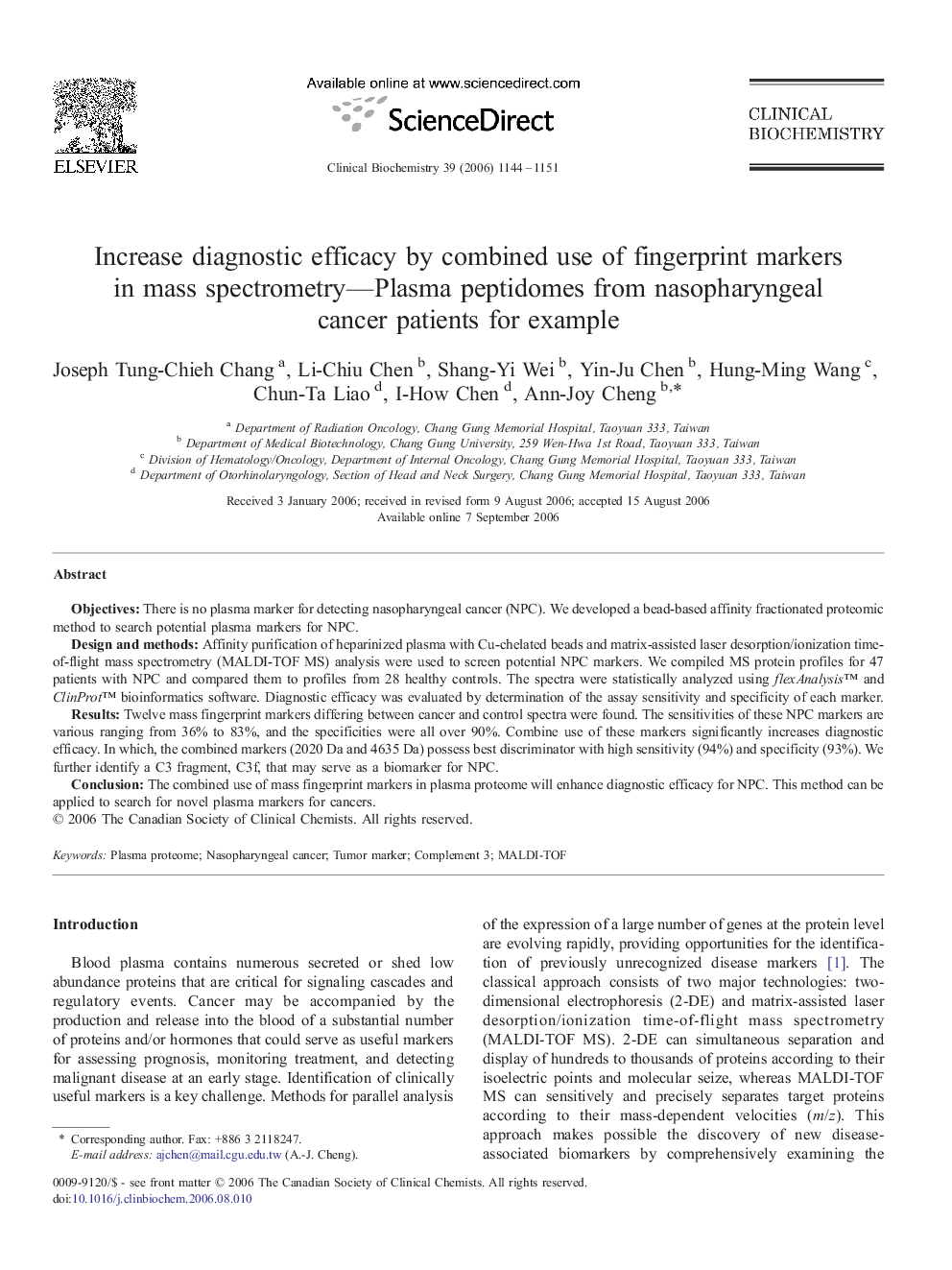| Article ID | Journal | Published Year | Pages | File Type |
|---|---|---|---|---|
| 1970609 | Clinical Biochemistry | 2006 | 8 Pages |
Objectives:There is no plasma marker for detecting nasopharyngeal cancer (NPC). We developed a bead-based affinity fractionated proteomic method to search potential plasma markers for NPC.Design and methods:Affinity purification of heparinized plasma with Cu-chelated beads and matrix-assisted laser desorption/ionization time-of-flight mass spectrometry (MALDI-TOF MS) analysis were used to screen potential NPC markers. We compiled MS protein profiles for 47 patients with NPC and compared them to profiles from 28 healthy controls. The spectra were statistically analyzed using flexAnalysis™ and ClinProt™ bioinformatics software. Diagnostic efficacy was evaluated by determination of the assay sensitivity and specificity of each marker.Results:Twelve mass fingerprint markers differing between cancer and control spectra were found. The sensitivities of these NPC markers are various ranging from 36% to 83%, and the specificities were all over 90%. Combine use of these markers significantly increases diagnostic efficacy. In which, the combined markers (2020 Da and 4635 Da) possess best discriminator with high sensitivity (94%) and specificity (93%). We further identify a C3 fragment, C3f, that may serve as a biomarker for NPC.Conclusion:The combined use of mass fingerprint markers in plasma proteome will enhance diagnostic efficacy for NPC. This method can be applied to search for novel plasma markers for cancers.
